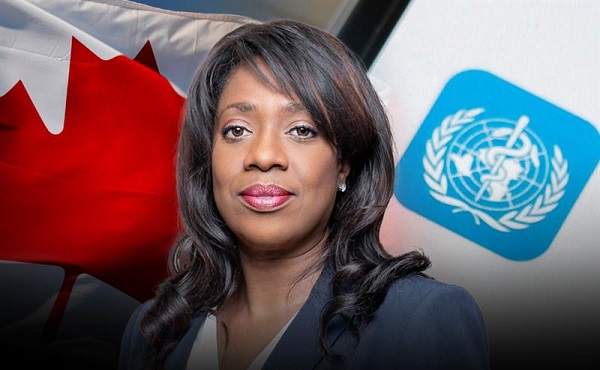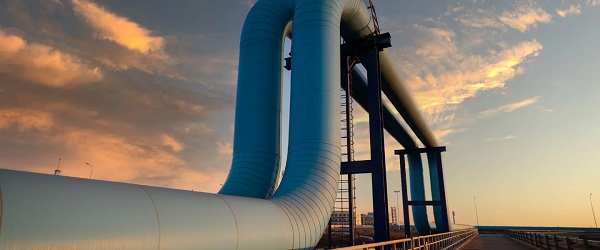Frontier Centre for Public Policy
Mark Carney’s Leadership Win Mirrors Past Liberal Failures

From the Frontier Centre for Public Policy
By Lee Harding
The Liberal Party has crowned Mark Carney leader, but his path to victory is riddled with obstacles
The Liberal Party of Canada has selected a non-MP to become prime minister, but precedent suggests he won’t last long. Mark Carney represents the worst aspects of both John Turner’s and Michael Ignatieff’s political rises and appears destined for the same electoral futility.
When Pierre Trudeau stepped down as Liberal leader in 1984 after more than 15 years as prime minister, he left behind a parting gift: over 200 Liberal patronage appointments. His successor, John Turner, agreed to another 70. These appointments became a burden, weighing down Turner’s leadership before it had even begun. Like Carney, Turner was not a sitting MP when he became leader. Forced to call a snap election, he watched the Progressive Conservatives secure the first of two successive majorities.
Now, history is repeating itself. Justin Trudeau’s cabinet made 70 appointments in its final days, including 12 judges. That number doesn’t include the 10 senators he appointed while Parliament was prorogued—nearly 10 per cent of the 105-seat chamber. Like Turner, Carney must navigate a leadership legacy tainted by patronage and an unpopular outgoing prime minister.
But does Carney’s experience, reputation, and distance from Trudeau offer him a fresh start? It seems unlikely. Unlike Turner, Carney has never held elected office.
Turner at least had a political track record. As a cabinet minister under two prime ministers, he handled high-profile Justice and Finance portfolios. He also benefited from a nine-year break from politics, distancing himself from the unpopular Trudeau. None of it mattered. Turner still lost.
Liberals hope Carney can ride a wave of popularity after a dominant leadership victory, securing 85 per cent support. But what did he really win? A former central banker, he climbed atop a heap of ruins.
His victory over Chrystia Freeland, Karina Gould, and former MP Frank Baylis was less a competitive race and more a coronation. Freeland carried the baggage of Trudeau’s policies, while the other two lacked national recognition. Carney, the only contender without direct ties to Trudeau’s government, was the default choice. The Liberal Party is adrift, and he simply took the helm.
But winning an uncontested leadership race is no guarantee of electoral success. Turner’s rise in 1984 was far more hard-fought—he overcame political heavyweights, including Jean Chrétien and four other cabinet ministers, in a real contest for the party’s future. Yet despite his credentials and broad support within the party, Canadians still rejected him.
And unlike Turner, Carney’s leadership victory raises serious legitimacy concerns. Liberal leadership races allow votes from permanent residents (non-citizens) and minors aged 14 to 17—groups that have no say in a general election. Even more troubling, of the 400,000 votes cast, only 147,000 were verified. Carney received 126,000 of those votes, but nearly two-thirds of ballots were rejected. Had those votes gone to any of his opponents, Carney’s win would have been far from certain.
A Rebel News petition calling for Elections Canada, CSIS, and the RCMP to audit the leadership vote is already circulating. While skepticism over the process is reasonable, it’s doubtful that meaningful answers will emerge.
Beyond legitimacy issues, Carney shares another unfortunate trait with a failed Liberal leader: Michael Ignatieff.
Ignatieff followed Stéphane Dion, whose push for a carbon tax proved deeply unpopular. The Conservatives quickly branded Ignatieff, a long-time Harvard professor, as an elitist disconnected from ordinary Canadians. Their “He didn’t come back for you” attack ads stuck, and Ignatieff led the Liberals to a historic defeat, falling to third-party status.
Carney faces the same vulnerability. After years in England, he will struggle to shake the image of an out-of-touch globalist. His French, weaker than Ignatieff’s, will also hurt him in Quebec, a province that abandoned the Liberals in 2011 in favour of the NDP.
History suggests Carney’s leadership will pave the way for another Conservative majority government—just as Turner and Ignatieff’s failures did.
Carney’s leadership campaign combines the worst aspects of 1984 and 2011. As an unelected, elitist ex-pat with weak French, he carries a Liberal banner weighed down by both Trudeau’s baggage and the deeply unpopular carbon tax.
A Conservative government with a mandate for reform is increasingly likely. A slimmed-down civil service, reduced regulations, the abolition of the carbon tax, and renewed pipeline construction could all be on the horizon. After nearly a decade of Liberal rule, Canada’s political pendulum seems set to swing back once again.
Lee Harding is Research Fellow for the Frontier Centre for Public Policy.
Business
Steel Subsidies Are The New Money Pit Burying Taxpayers

From the Frontier Centre for Public Policy
By Conrad Eder
The federal and Ontario governments’ $500 million loan to Algoma Steel exemplifies costly corporate welfare, with taxpayers bearing risks that private investors avoid, continuing a decades-long pattern of subsidies that distorts markets and burdens Canadians.
Governments call subsidies an economic strategy, but Canadians know they’re just another way to raid their pockets
Another day, another giveaway. This time, it’s Algoma Steel.
Despite the company’s market capitalization of roughly $500 million at the time, the governments of Canada and Ontario extended a loan equal to that amount—an extraordinary and objectively questionable move that isn’t just bad policy, but a sign that elected officials don’t know how to support businesses.
Officials justify the loan by claiming it will help Algoma refocus on its domestic market, lessening its reliance on the United States. Yet the fastest and most efficient way to execute such a strategy would involve doing so with private capital. Private markets allocate capital efficiently because investors directly bear the consequences of their decisions. Companies that cannot secure private funding typically lack a viable business model or face fundamental structural problems that subsidies will not solve.
Even if Algoma has a credible plan for pivoting its operations, the fact that taxpayers are shouldering risks private investors refuse to bear raises serious concerns. Canadians have a right to question whether this is a sound investment or just another costly political decision dressed up as economic strategy.
This isn’t the first time the company has leaned on public funds. Over the past three decades, Algoma has received more than $1.3 billion in government bailouts and subsidies, including $110 million for restructuring in 1992, $50 million in 2001, $60 million in 2015, $150 million in 2019, $420 million in 2021, and now $500 million in tariff-relief loans. That kind of prolonged public support makes it difficult to argue Algoma operates on a level playing field.
Proponents may argue that since Algoma continues to operate and provide employment, it proves government intervention works. But they ignore the enormous opportunity cost of these subsidies—costs largely hidden from public view. Every dollar spent propping up one company is a dollar that can’t fund other priorities, whether health care, education, infrastructure, or tax relief.
How will Ottawa and Queen’s Park cover their latest $500 million pledge? There are limited options. They may choose to forgo funding other priorities, borrow the money they just lent to cover other commitments, or monetize the debt by printing money or financing it through the central bank. In any case, Canadians are left worse off, whether by higher taxes, reduced services, or inflationary pressures. That’s the real cost of corporate subsidies, borne not by the companies that benefit, but by the public that pays.
But what if Algoma Steel faces further economic pressures, or its plans to refocus on domestic manufacturing fall through? Are we to expect that, having committed $500 million, the government will walk away? History suggests otherwise. More likely, officials will try to protect their investment regardless of the cost. It’s a slippery slope, one that often leads to even larger bailouts down the road.
Instead of selective corporate welfare, Canada should pursue policies that benefit all businesses: reducing regulatory burdens, lowering corporate tax rates, and eliminating trade barriers. These broad-based reforms create conditions where efficient companies thrive while inefficient ones face appropriate market discipline. The goal should be to make Canada more competitive overall, not just more generous to the few firms with political clout.
Adding insult to injury, this government’s simultaneous interventionism and protectionism places twice the burden on Canadians. First, taxpayers subsidize Algoma’s operations. Second, they pay premium prices for steel products thanks to federally imposed import tariffs introduced in recent years to shield domestic producers from lower-priced foreign steel. We are, in effect, subsidizing Algoma Steel to produce so that we can turn around and buy from them at higher prices than steel could be purchased from international competitors, if not for the tariffs. It’s a double hit to Canadians’ wallets.
Government officials invoke national security arguments to justify these measures, but in reality, they are engaging in the same economic protectionism they decry. During Trump’s first presidency, Canadian politicians rightly condemned similar American steel tariffs as protectionism disguised as security concerns. Now, Canadian officials are making identical arguments to defend their own policies.
While politicians warn about future threats to the country’s steel supply, it isn’t foreign governments restricting access. Ottawa has imposed its own import tariffs, limiting steel imports from abroad. The real barrier to securing steel supply isn’t an export ban. It’s Canada’s own trade policy.
Our own production capacity further weakens the government’s case. With companies like ArcelorMittal Dofasco and Stelco, Canada produces roughly 12.2 million metric tonnes of steel annually. That’s nearly enough to meet domestic demand. For everyday Canadians, this means alarms about steel shortages rings hollow.
This is not an endorsement of these other firms, as they have also received public funds, nearly $1 billion in recent years. In fact, Algoma might be disappointed not to have received more themselves. But it needn’t worry. With this government, another payout is likely just around the corner.
And once again, Canadians will foot the bill.
Conrad Eder is a policy analyst at the Frontier Centre for Public Policy.
Frontier Centre for Public Policy
Ottawa Should Think Twice Before Taxing Churches

From the Frontier Centre for Public Policy
Ottawa has churches in its crosshairs. A federal fiscal squeeze could strip religious organizations of tax breaks, crippling Canada’s community backbone
Proposals to revoke charitable status for faith-based groups would devastate the community services thousands rely on
Canada’s churches, synagogues, temples, mosques and charities like the Salvation Army are at the heart of our communities, offering hope, support and services to thousands. But a storm is brewing in Ottawa that could strip these vital institutions of their charitable status, threatening their very survival—and much of our country’s social fabric.
The 2025 House of Commons Standing Committee on Finance, which makes recommendations to shape the federal budget, dropped a bombshell in its prebudget report, an influential document often used to set priorities for the year ahead. It included two recommendations that could hit religious organizations hard.
The first is that the government revoke the charitable status of pro-life groups. These agencies are being singled out because of the support they provide to pregnant women who do not wish to abort their children.
The second is that the “advancement of religion,” one of the four long-standing categories under which Canadian charities qualify for registration, be eliminated. The recommendation was based on a single proposal by the B.C. Humanist Association, a provincial nonprofit organization in British Columbia that represents atheists, humanists, agnostics and non-religious people.
If included in the next federal budget, these ideas would strip religious organizations across Canada of tax exemptions, the ability to issue donation receipts and, if provinces follow suit, property tax breaks.
Why target these groups?
Ottawa desperately needs the cash. The federal government is on a spending binge of gargantuan proportions with no end in sight. Canada’s balance sheet is drenched in red ink, with no credible plan to address the structural budget deficit, which the C.D. Howe Institute, a Toronto-based policy think tank, estimates will reach a record $92 billion this year. While the tax exemptions amount to only between $1.7 and $3.2 billion annually, the temptation to grab what it can from churches may prove irresistible.
But it’s not just about the dollars. Religious institutions have increasingly faced criticism from secular voices in Ottawa and academia. The Catholic Church, for example, is still facing harsh criticism over its role in Canada’s residential school system and over recent allegations of unmarked graves of Indigenous children at some schools.
As for Protestant and Evangelical churches, public perception casts these institutions as clashing with modern societal norms. Critics claim that churches opposing abortion or prevailing views on human sexuality should be compelled to align with government policies on these issues.
The message seems to be: shape up or ship out. This isn’t just a policy debate; it’s a cultural attack on institutions that have shaped Canada for generations.
Despite the criticism, there are compelling reasons to preserve the charitable status of religious organizations.
First, a recent study by Cardus, a Canadian faith-based think tank, shows that for every dollar of tax exemption, religious groups deliver $10 in community services.
Second, religious congregations offer substantial intangible benefits of immeasurable value. They foster vibrant communities where individuals find friendship, emotional support and spaces to explore questions of meaning and purpose. They also provide opportunities for people to experience a sense of transcendence and spiritual connection.
When the current focus on materialism comes to an end, as it must, many Canadians will turn to the church for guidance in addressing the most profound questions about human existence.
Ottawa needs to get its fiscal house in order, not raid ours. It’s time for Canadians to speak up. Write to your MP, attend community forums and demand that the charitable status for religious organizations be preserved. Doing so will ensure that churches and other places of worship continue to serve Canadians for generations.
Pierre Gilbert, PhD, is an emeritus associate professor at Canadian Mennonite University and a senior fellow at the Frontier Centre for Public Policy. He is the author of Revoking the Charitable Status for the Advancement of Religion: A Critical Assessment and God Never Meant for Us to Die (2020).
-

 Agriculture2 days ago
Agriculture2 days agoFrom Underdog to Top Broodmare
-

 Health2 days ago
Health2 days agoSovereignty at Stake: Why Parliament Must Review Treaties Before They’re Signed
-

 Business2 days ago
Business2 days ago$15B and No Guarantees? Stellantis Deal explained by former Conservative Shadow Minister of Innovation, Science and Technology
-

 RCMP2 days ago
RCMP2 days agoPolice arrest thieves using garage-door openers to access homes in Vanier, West Park, Anders Park, and Evergreen
-

 Bruce Dowbiggin2 days ago
Bruce Dowbiggin2 days agoWhile America Shrugs Off Woke, Canada Doubles Down On Feminizing Society
-

 Energy2 days ago
Energy2 days agoNational media energy attacks: Bureau chiefs or three major Canadian newspapers woefully misinformed about pipelines
-

 COVID-192 days ago
COVID-192 days agoCanadian veteran challenges conviction for guarding War Memorial during Freedom Convoy
-

 DEI1 day ago
DEI1 day agoConservative push to end Canada’s ‘anti-merit’ DEI programs receives support





